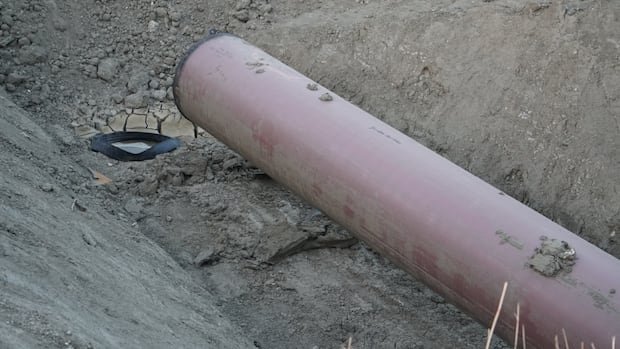After months of Premier Danielle Smith’s determination to secure a company willing to develop a new oil export pipeline, the Alberta government itself is stepping in. Smith becomes the third consecutive Alberta premier to allocate taxpayer funds in an effort to facilitate increased oil exports from the province. This move has garnered a mix of commendation and apprehension from the oil industry, which desires a new pipeline but remains wary of government intervention.
Numerous obstacles lie ahead for this proposal to progress, including existing federal regulations, the regulatory process, and the necessity for sufficient oil producers to commit to utilizing a new pipeline long-term. Smith recently announced that the provincial government will introduce its project, supported by an advisory group consisting of pipeline companies like South Bow, Enbridge, and Trans Mountain.
To kickstart the initiative, Smith has dedicated $14 million to craft and submit the proposal to the federal Major Projects Office in the upcoming spring, which will involve outlining a feasible route to the West Coast and estimating costs. The provincial government has clarified that, at present, it does not intend to construct or operate a new pipeline itself.
Industry experts have shared contrasting views on the government’s involvement in the project. While some, like Robert Cooper from Acumen Capital Partners, laud the initiative as necessary for economic progress, others, such as Rafi Tahmazian from Canoe Financial, express reservations about direct government intervention in the sector.
The completion of the Trans Mountain expansion has temporarily alleviated the pressure on existing export pipelines to accommodate increased oil production. However, forecasts indicate that by 2030, these pipelines will reach full capacity as oil production in Alberta continues to rise. Prime Minister Mark Carney has expressed support for a new oil export pipeline, yet major pipeline companies have yet to announce any such projects this year.
The complexity, cost, and history of failed pipeline projects pose significant challenges to developing and constructing a new export pipeline. The Alberta government’s proposal faces similar hurdles, as emphasized by Deborah Yedlin from the Calgary Chamber of Commerce. Private capital remains hesitant to invest in such projects until the government mitigates the risks involved.
Looking back at past Alberta investments in the oil sector, there have been instances where substantial government funds were allocated to advance pipeline projects, with varying degrees of success. Premier Smith’s current proposal may necessitate a higher initial investment than the allocated $14 million, given the extensive costs associated with pipeline development.
Despite the challenges ahead, industry experts like Dennis McConaghy acknowledge Smith’s commitment to advancing a new pipeline. Nevertheless, the pivotal factor remains whether major oil producers will endorse the proposal by committing to long-term contracts for pipeline usage. Additionally, the project may encounter opposition from communities and political figures, adding further complexity to its realization.

